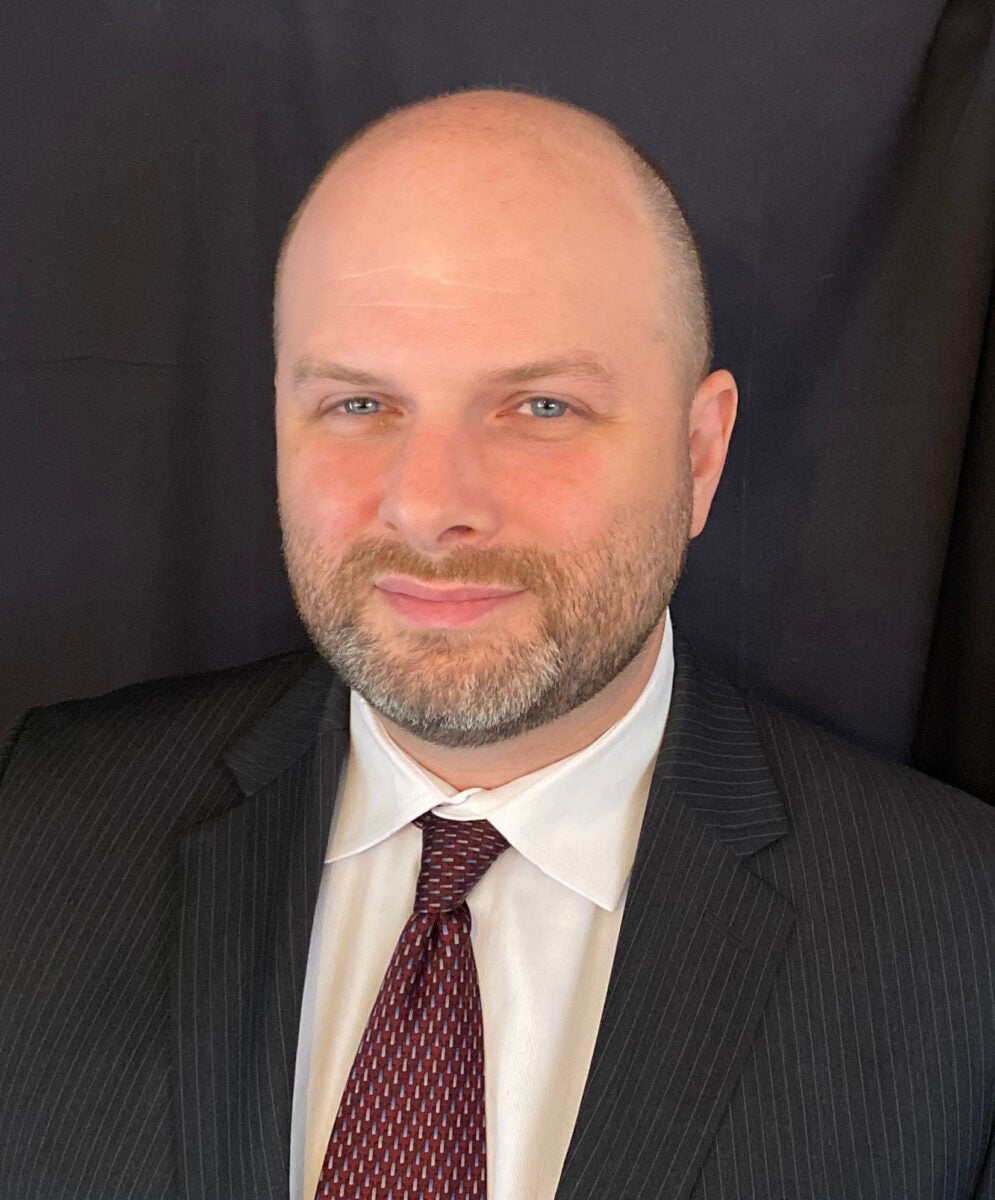By Jake Medwell and Loren Smith
The views expressed here are solely those of the authors and do not necessarily represent the views of FreightWaves or its affiliates. Jake Medwell, founding partner at 8VC, and Loren Smith, president of Skyline Policy Risk Group, discuss key industry topics for this regular quarterly Q&A exclusively on FreightWaves.
MEDWELL: What’s the big picture right now for the supply chain, and how are policymakers responding?
SMITH: The systemic pressure has been easing all year, which is very good. But unfortunately it looks like the reasons for this are not so good. Inflation in developed countries has led to demand destruction, meaning people are buying less to save money, and we might see a global recession in the coming months.
MEDWELL: And fuel prices are up.
SMITH: Yes, and diesel fuel in particular. In Europe, diesel is widely used for trucks and passenger vehicles, and the U.S.-EU fuel markets are being tied together more tightly because of the war in Ukraine. U.S. oil and gas is being shipped over to compensate for the loss of Russian imports, and this is contributing to a renewed price hike — perhaps a sharp hike — in U.S. diesel prices. The northeastern U.S. will see this most, with possible shortages.
In the U.S., diesel is used mainly for trucks. Price hikes there will result in more expensive food and consumer goods.
MEDWELL: How is the Biden administration responding? Or other policymakers?
SMITH: The Biden administration released another chunk — previously scheduled — from the Strategic Petroleum Reserve (SPR). This is helping lower gas prices a bit, but the problem is that it’s only a modest push on prices and won’t last long. There’s also the fact that the SPR is a finite supply and it’s going to be hard to release more.
The bigger choke point in the system is the refineries, which are operating more or less at capacity.
There’s, of course, a strategic question here for climate policy: How much is the U.S. government willing to commit to improving the oil-to-refinery-to-fuel delivery system, if they’re trying to move the U.S. fleet to electric? That’s why the measures seriously discussed this year have been short term in nature: maybe a gas tax holiday (which ended up not happening), maybe a release from the SPR (which did), all while hoping that the Russian offensive in Ukraine ends soon and world energy markets can normalize. Unfortunately, we don’t see the war ending in this calendar year.
MEDWELL: That’s grim. But speaking of electrification, how is it going? The Inflation Reduction Act (IRA) in August is supposed to nudge us a bit further down the road, right?
SMITH: It does that by giving a bit more certainty to the tax credit for EV purchases and targeting the tax relief toward more middle-class consumers. But there’s a related policy angle here, which is very important, but will take longer to play out. That’s the geopolitics of critical minerals and the battery supply chain.
MEDWELL: In other words, where are we going to get all the rare earths?
SMITH: Right. The U.S. government has shifted its strategy a bit in a way that’s very important for observers to understand. It’s not really a partisan shift. It may have started under (former President Donald) Trump, but the (Joe) Biden team is carrying it forward. And that’s a more committed focus on the industrial base domestically and supply chains globally.
The IRA is designed to force automakers to begin sourcing more production from domestic sources, to deleverage from China, which controls more than 80% of the production of these critical minerals used in batteries.
MEDWELL: You say domestically, but it’s not just that is it? This is where nearshoring and “friend-shoring” comes in?
SMITH: Exactly. When the IRA was in its final stages, the domestic requirements were broadened to include Mexico and Canada, which the U.S., of course, is closely tied to via the USMCA free-trade agreement. (The U.S.-Mexico-Canada Agreement is the updated version of North American Free Trade Agreement, or NAFTA.)
Where the “friend-shoring” comes in is countries a bit further afield, such as Australia, the Democratic Republic of the Congo and various nations in Latin America. The longer-term strategy is to establish U.S. trading patterns that are more focused on its own sphere of influence. We’re in a new era of great power competition, starring the U.S. and China.
MEDWELL: “Longer term” — but that creates its own problem, doesn’t it?
SMITH: It does. If electrification is going to accelerate right now, there’s not really time to realign the entire global supply chain for critical minerals, which is the work of decades. China will remain an important source for some time to come. Companies are already asking for allowances to still apply the EV tax credit longer than the timeline given in the IRA.
MEDWELL: And EVs aren’t the only answer, is that right? What about hydrogen?
SMITH: Yes, hydrogen fuel cell technology is very possibly the answer, or part of the answer, for trucking. With the rise of “green hydrogen,” or hydrogen derived from water electrolysis instead of natural gas, the lifecycle emissions come down substantially.
It’s also likely that we will continue to see internal combustion vehicles powered by gas and diesel for several decades to come, especially for colder-weather areas where EVs don’t operate as well. That’s for cars as well as trucks.
MEDWELL: Let’s move on to freight infrastructure. How are we doing now that we’re almost a year past the big infrastructure bill?
SMITH: Well, the implementation of the 2021 bill — the Infrastructure Investment and Jobs Act (IIJA) — is coming along, and we are seeing a good amount of that funding go toward the freight network, especially for ports, and with several important truck parking projects getting funding. However, I still think that permitting reform is needed to speed up project delivery and get projects approved over the next year or two.
MEDWELL: Still too much red tape with the permitting?
SMITH: The U.S. has an unusually cumbersome process for permitting, even compared to other developed nations. It’s appropriate to have several checkpoints for major projects to get the green light, but the process here includes literally dozens of checkpoints, meaning that major projects often end up on hold for years.
MEDWELL: Is there any good news here?
SMITH: The Biden administration does seem to want to improve the process, and Sen. Joe Manchin (D-W.Va.) has a permitting proposal out there. The Manchin deal ended up shelved this year, but next year the Republicans are likely to make permitting one of their projects if they have majorities in Congress. I’m not super-optimistic about a deal, but it’s possible.
MEDWELL: How about on the technology side? Freight tech is something I feel strongly about, that we can better harness the data that’s available to improve freight flows.
SMITH: One of the questions the federal government is considering right now is whether or not to allow vessel manifests to remain confidential. Supporters of this approach argue that it would help streamline release of data from companies to customs agencies. However, there are concerns about closing off that data pipeline, as it’s often used for various transparency purposes. If you cordon off the data, are you going to reduce the ability for folks to take an overall view of various imports, track human rights abuses or other problems in the system?
MEDWELL: They definitely need to think carefully about that. How about on the labor front? Some of the headlines on rail look a little alarming.
SMITH: There are two major issues cooking on the labor front. You mention rail. Back in September, the rail labor unions and the major carriers struck a deal that should carry forward for the next five years. The wrinkle is that it has to be approved by the 12 separate unions that represent rail workers. Two unions have now rejected that deal, and by mid-November the parties will have to agree on another extension.
I think there will be a deal to avoid a strike, but things are definitely unsettled.
The other major labor issue for freight is the West Coast ports labor negotiation between the International Longshore and Warehouse Union (ILWU) and the Pacific Maritime Association (PMA), which represents the employers.
The good news on the port labor issue is that both sides are in daily talks for a deal, and there have been relatively few leaks. Presumably, if the talks weren’t going well, they’d be knifing each other in the press a lot more than they have.
However, on both issues, my concern is that we’re not going to see any resolution before Nov. 8, when the midterm elections were expected to mostly be resolved. There is a certain amount of political pressure on both sides not to raise the volume too high, especially with all the other disruptions happening. That pressure seems like it’s been positive thus far. If it goes away, who knows what might happen?
MEDWELL: And so there should be some anxiety. A strike could happen. Maybe multiple strikes?
SMITH: Yes, that is possible. It’s unlikely, but definitely something for folks to be aware of over the next few months.
MEWELL: What about the holiday season? This isn’t going to ruin Christmas, is it?
SMITH: I don’t think so. I think the parties understand they need to get this resolved somehow. If chaos takes over between Thanksgiving and New Year’s, the political reaction could still be very strong. Nobody wants a huge mess, especially with a global economic slowdown coming.
MEDWELL: Let’s close on that hopeful note. They may be able to figure it out!
SMITH: Indeed!
MEDWELL: Thanks for the time and, to our readers, we’ll speak again soon!
About the authors

Jake Medwell, founding partner of 8VC, focuses on both consumer and enterprise investments. A serial entrepreneur who has spent his life building and scaling companies, he also leads 8VC’s logistics and transportation focus. Prior to launching 8VC, Medwell co-founded Humin, a consumer mobile software company where he built the engineering team and led growth. He also co-founded The Kairos Society, where he sits on the board of directors. While in college at the University of Southern California, he founded Sole Bicycle Co. and grew it into an industry leader. Most recently, he co-founded Operation Masks with partner Drew Oetting to help bring personal protective equipment to medical workers on the front line of the fight against COVID-19.

Loren A. Smith Jr. is the president of Skyline Policy Risk Group. From 2017 to 2021, he worked at the Department of Transportation as deputy assistant secretary for policy. There, his leadership included serving as DOT’s chief environmental review permitting officer; chair of the management team for the ROUTES Initiative on rural transportation; and as a member of the task force on regulatory reform, including leading efforts on supersonic aviation. From 2009 to 2016, he was an analyst for Capital Alpha Partners, a Washington-based research firm that studies public policy for investors. He specialized in transportation policy, particularly relating to autos and infrastructure, and published more than 500 research notes.










